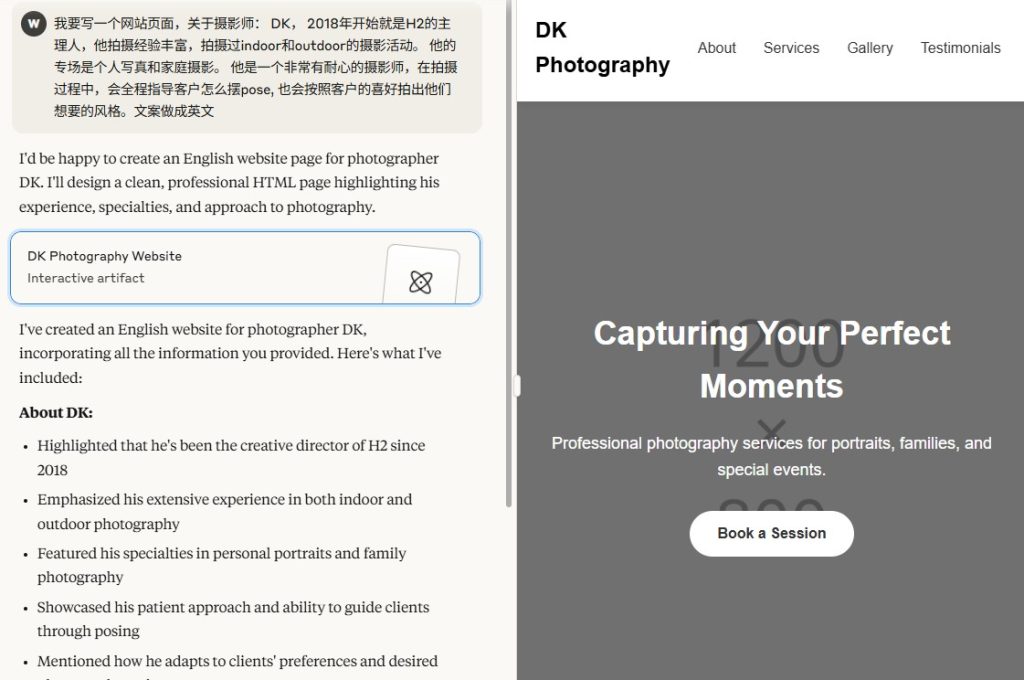Blogging has emerged as a vital element in today’s digital landscape, where content creation and sharing are key. It allows individuals and businesses to communicate their thoughts and ideas to a massive audience and establish an online presence that reflects credibility.
A successful blog must be relevant, unique and captivating, offering valuable insights and information on a wide range of topics. By producing high-quality content, blogs can drive traffic to a website, foster a strong online community, and positively impact brand image and reputation.
In the current era, writing an effective blog goes beyond personal preferences, as they play a critical role in the success of individuals and businesses alike. To create exceptional blog content, it’s crucial to engage with readers and provide a memorable experience. This article explores all these aspects in detail.
7 Tips to Make Your Blog Engaging
Getting To Know The Target Audience
Knowing your target audience is vital to creating compelling blog content that resonates with them. This can be achieved through thorough audience research to gather insights into their demographics, interests, and habits. By understanding your audience’s needs and pain points, you can craft content that addresses them and keeps them engaged.
Interact with your audience through comments, social media, and e-mail, encouraging them to provide feedback and participate in discussions. Use website analytics to track their engagement with your blog and identify what content resonates with them and what can be improved.
By comprehending your audience, you can create content that speaks to them, build stronger relationships, and increase engagement, repeat visits, and growth of your online community.
Provide Informative and Valuable Content
Make sure that your content provides value to your readers. It should be relevant to your industry and compelling enough for your readers to keep returning for more. In addition, your blogs should offer actionable tips, useful information, and practical advice to help your readers solve a problem or achieve a goal.
Incorporate storytelling into your blog posts to make them more engaging. For example, share personal experiences, case studies, or customer success stories that illustrate your points and connect with your readers on an emotional level.
Also, add your keywords organically to your blog posts to help search engines identify your blog and feature it when someone searches using those keywords. Informative blogs are a must for implementing a winning SEO strategy.
Writing Less Complex Sentences
This is one of the most important points when it comes to making engaging content. People often get bored or lose interest if they get overwhelmed by complex and long sentence structures that might appear in a blog.
Simple and clear language is easier for readers to understand, allowing them to grasp the message being conveyed quickly. This makes the content more accessible and appealing to a wider audience, including those who may not be native speakers of the language or those who have limited attention spans.
Additionally, shorter sentences break up the text into smaller, manageable chunks, making it easier to read and retain information. Also, break up long paragraphs into shorter ones and use subheadings to make it easier for readers to scan and find the information they need. Use bullet points and lists to make complex information more digestible.
Writing in this style also makes it easier to keep the reader’s attention and maintain their interest, as they are less likely to get bogged down by confusing or convoluted sentences. In conclusion, writing simple and concise sentences can greatly enhance the readability and engagement of your blog content.
Catchy Headings Of A Blog
The heading of a blog post is one of the most important elements for making the content engaging. A catchy headline is what draws the reader in, encouraging them to click and read further. A well-crafted headline can also convey the topic and tone of the post, giving the reader an idea of what to expect. Here are a few reasons why using a catchy heading is important:
Attention-grabbing
A headline that immediately captures the reader’s attention is more likely to result in clicks and engagement.
Clarity
A headline that is clear and concise can more accurately summarise the content of the post.
Search Engine Optimization (SEO)
A strong headline can also help with search engine optimisation (SEO), as search engines make use of headlines to understand the content of a post.
Social Media
Headlines play a critical role in social media, as they often serve as the first impression for readers. An engaging headline is also share-worthy and can result in more social media shares and traffic to the post.
Use of Images and Videos
Visual content can break up long blocks of text and bring your blog to life. They help illustrate your points and get your message across to the readers. Studies have shown that people tend to retain content that is paired with visuals more as compared to text only.
Incorporate relevant images and videos to keep your readers engaged, especially when it comes to long-form content. Visuals not only grasp your target audience’s attention but also promote information retention, improving your brand’s recall value.
Also, images can boost your SEO. Simply add your primary keyword as the alt text for all the photos and improve your ranking on search engines.
Optimisation For Ease Of Navigation
Having a user-friendly and easy-to-navigate website can greatly improve the user experience for those visiting a blog, leading to increased engagement. When visitors can easily find the information they are looking for, they are more likely to spend more time on the site, read more articles, and return in the future.
A well-designed website can also make it easier for readers to engage with the content through features like share buttons, comment sections, and e-mail subscriptions. By improving the overall user experience, the focus on user-friendliness and easy navigation can lead to increased engagement and a more successful blog.
Be Consistent
Consistency is key to building an engaged audience. Post regularly and at consistent intervals to keep your readers coming back for more. This way, you can build authority in your field with your audience as well as the search engines.
The frequency of posting your content depends on your business and the goal you would like to accomplish with your blogs. For a start, you can schedule 1-2 blogs per week to build your brand awareness and then, slowly, based on the response, increase the number of posts. Then, you can use Google Analytics and Google Search Console to analyse your blog’s performance and adjust the frequency accordingly.
But do keep in mind that while maintaining consistency, you shouldn’t compromise on the quality of the blogs you post. Google would penalise you by ranking your blog lower if your readers come to your blog and click away as they cannot get what they are looking for. Your blogs will rank higher organically only if you provide relevant and useful information to the audience.
Conclusion
In conclusion, creating engaging blog content is essential for building a strong online presence and establishing credibility in the modern world. Understanding the target audience, writing on relevant topics, using simple sentences and visuals, coming up with catchy headings, optimising for ease of navigation and being consistent are all essential elements to consider when crafting high-quality blog content.
By following these guidelines, bloggers can build a loyal following, drive traffic to their websites, and communicate their ideas effectively to a broad audience. Whether it be for personal or business purposes, putting effort into making your blog content engaging will ultimately lead to greater success in the digital realm.
If you are short of resources but want to keep the blog page alive on your website, you should engage an SEO agency to help with it. Being an expert in their field, they can help you bring more traffic to your site as well as improve your organic search by using the right keywords in the blogs.








